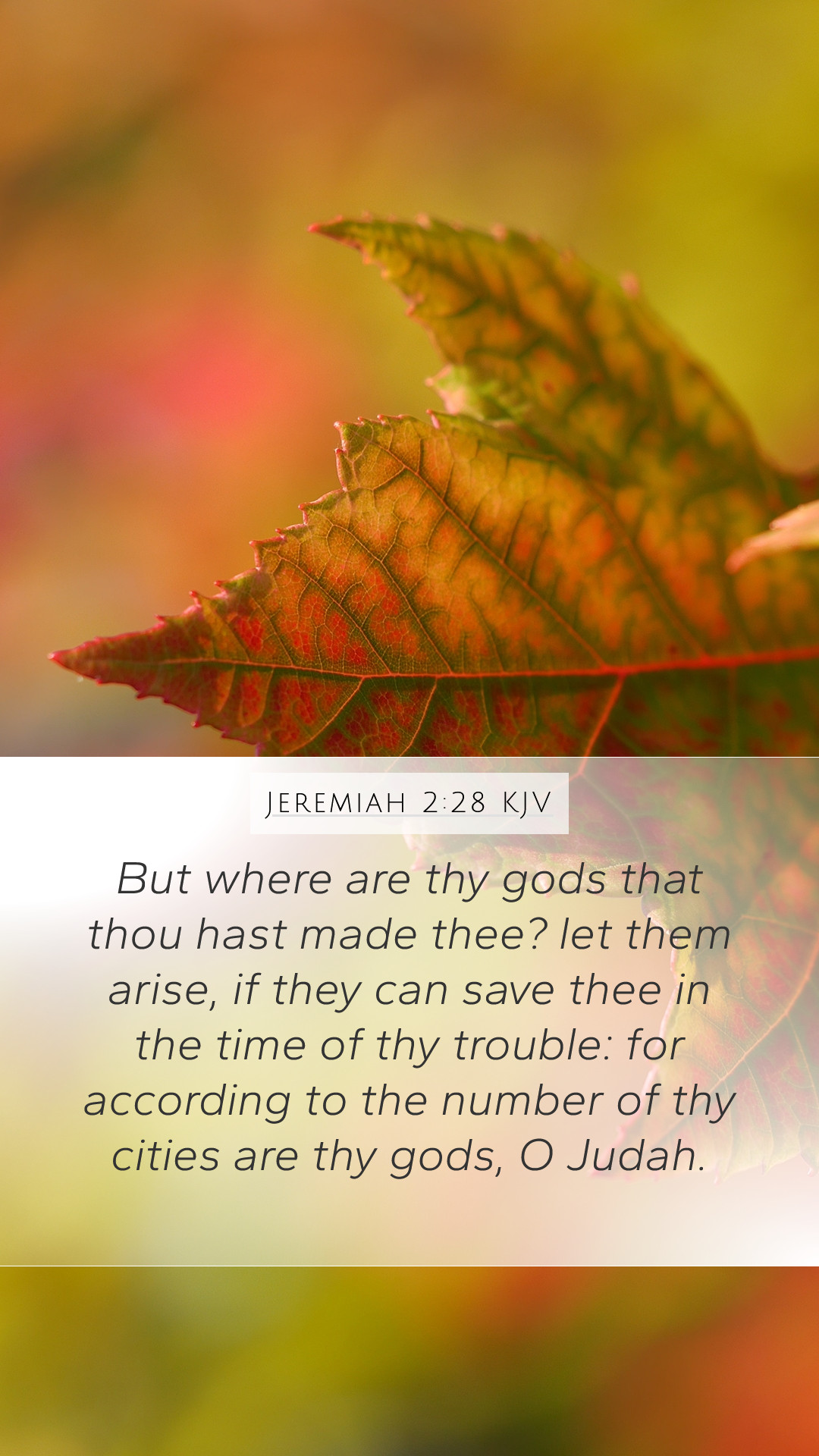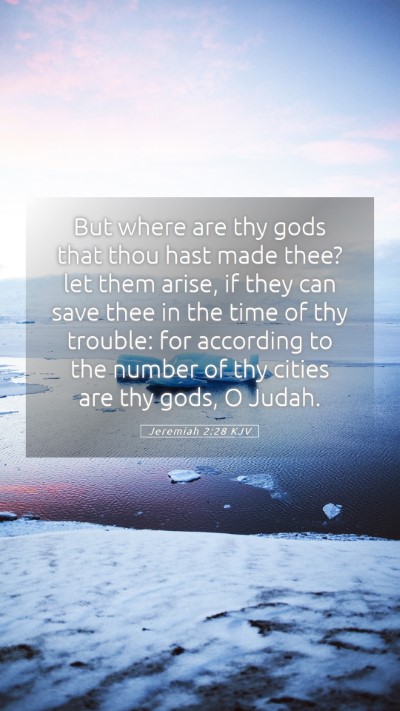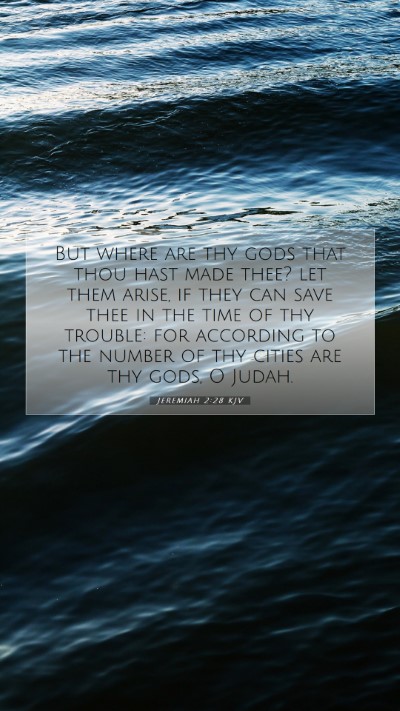Bible Verse Meaning and Commentary: Jeremiah 2:28
Verse: "But where are your gods that you made for yourself? Let them arise, if they can save you in the time of your trouble; for as many as your cities are your gods, O Judah." (Jeremiah 2:28, ESV)
Overview: This verse serves as a powerful indictment against the people of Judah for the sins of idolatry and misplaced trust. Jeremiah challenges the nation by questioning the effectiveness of the gods they have created and turned to for help.
Summary of Insights from Public Domain Commentaries
Matthew Henry's Commentary:
Matthew Henry emphasizes the futility of the idols that the Israelites had fashioned for themselves. He points out that these gods are powerless and unable to save in times of distress. Henry highlights that this verse illustrates the foolishness of turning to man-made deities instead of the living God. He notes that Judah's multitude of gods—equivalent to the number of cities—reflects the total abandonment of true worship and trust in God.
Albert Barnes' Notes on the Bible:
Albert Barnes elaborates on the context of this verse by reminding readers of Israel's persistent rebellion against God. He interprets "where are your gods" as a taunt against the false beliefs held by Judah. Barnes suggests that the verse showcases the absurdity of relying on idols during crises, highlighting that true help comes only from the Almighty. He also notes the historical background of the Israelites’ idolatry and how it led them away from their covenant with God.
Adam Clarke's Commentary:
Adam Clarke focuses on the rhetorical nature of the question posed in the verse. He interprets the inquiry about the gods made by the Israelites as a call to self-reflection about their misplaced faith. Clarke emphasizes the irony presented, that the very idols they created could not assist them in their time of need. He discusses the broader implications of straying from divine worship and warns against the consequences of such actions, making it a pivotal warning about idolatry.
Key Themes in Jeremiah 2:28
- Idolatry: The verse underscores the issue of idolatry in ancient Judah and its relevance for contemporary believers.
- Self-Reliance vs. Divine Reliance: It contrasts reliance on human-made gods versus trust in the one true God.
- Consequences of Sin: The passage serves as a reminder of the repercussions that arise from turning away from God and his commandments.
Application for Today
The challenge presented in Jeremiah 2:28 is highly relevant today; believers are invited to reflect on what “gods” they may be relying on instead of God Himself. This verse prompts a critical examination of where one's faith lies—whether in material possessions, societal status, or other distractions—rather than in the living God who created everything. Real faith calls for casting aside false securities and prioritizing a genuine relationship with God, as He alone is capable of saving and delivering during times of turmoil.
Cross References
- Psalm 115:4-8: Discusses the futility of idols and their inability to act.
- Isaiah 44:9-20: A passage that humorously illustrates the folly of idol-making.
- Jeremiah 10:5: Compares the futility of idols to the Creator.
Conclusion
In summary, Jeremiah 2:28 poses a profound question that transcends time and culture, challenging the readers to examine their own lives in relation to their faith. By understanding this verse through various commentaries, one gains deeper insights into scripture analysis and biblical exegesis, enriching their overall comprehension of the Word and its applications in daily life. This reflection can aid Bible study groups, online Bible study, and personal devotionals.
Further Resources for Bible Study
For those seeking to deepen their understanding of scripture, consider utilizing Bible study tools, guides, and lessons that focus on the contextual and historical elements of biblical texts. These can enhance personal growth and foster a more profound engagement with the Bible's teachings.


